A coverage of Indonesian Cultural And Heritage Day 2024
Indonesian Cultural Heritage Day
Sunday, September 8th 2024
Indo Idaho proudly hosted Indonesian Cultural Heritage Day 2024 on Sunday, September 8th. This year’s event featured a vibrant showcase of Indonesian traditional dances, songs, popular pop music, delicious cuisine, and a traditional-style fashion show! With such a rich variety of Indonesian culture, we were thrilled to have the opportunity to share and celebrate with the diverse community here in Idaho, USA.
As a grant recipient of Art and History Annual Grant, we'd like to thank Boise City Department of Arts & History for their continuous support and also to all of our performers and everyone who helped make this event possible!
Here’s a recap of our fantastic day, and we hope to see you at our future events!
Pendet, The Greeting Balinese Dance
At 11 AM, our event began with a traditional Balinese dance called the Pendet Dance. Also known as the floral offering dance, Pendet is traditionally performed to purify a temple or theater as a prelude to ceremonies. Typically performed by young girls, the dancers carry bowls of flower petals, tossing them into the air throughout the performance. It is considered a welcoming dance, inviting good spirits and greeting the audience.
Fun fact: Pendet is one of the oldest Balinese dances!
We greeted and welcomed our guests with beautiful petals and graceful dancers!
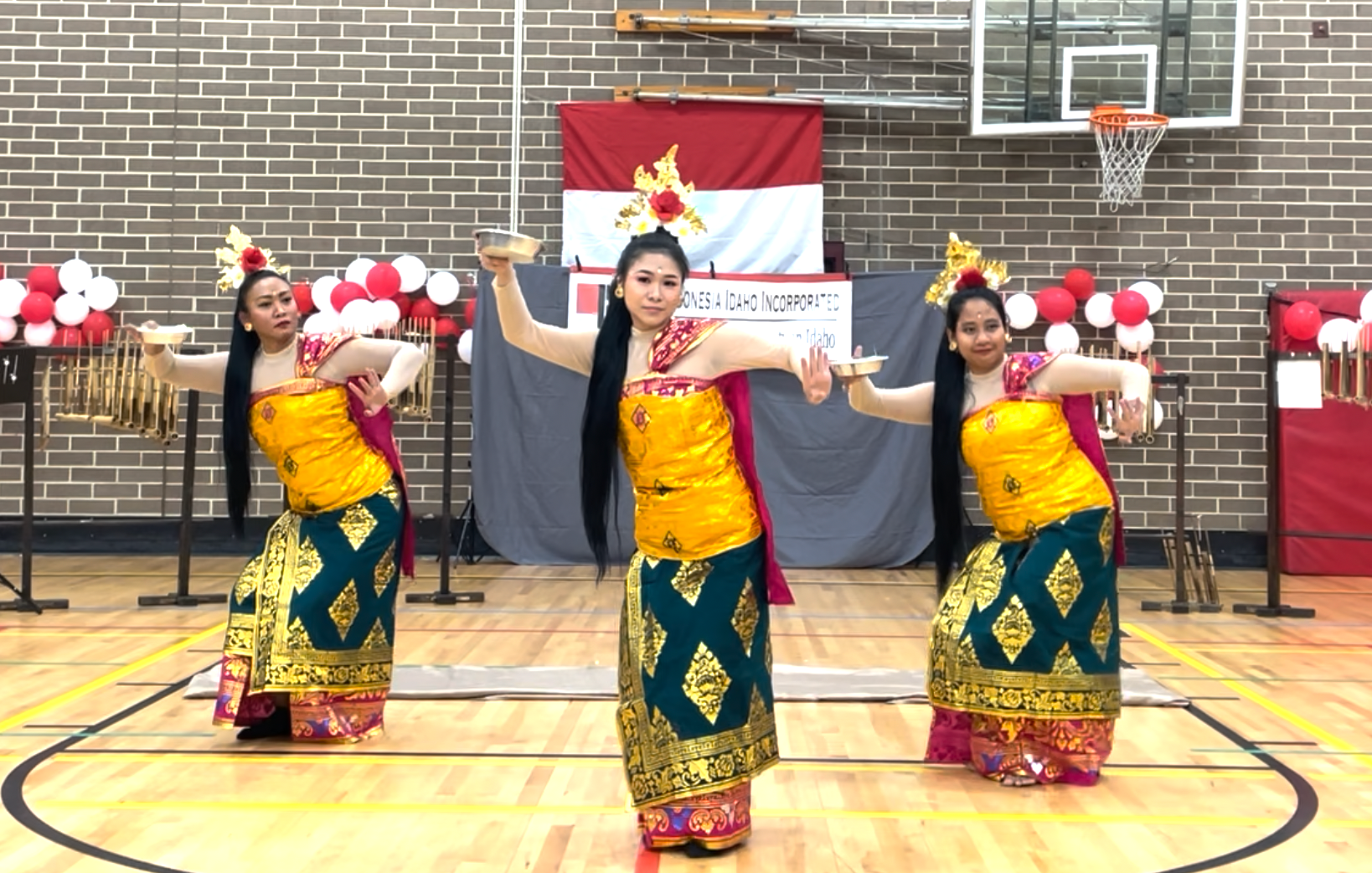
Our dancers from the left: Niken Strawn, Inge Han, Arin Hening.
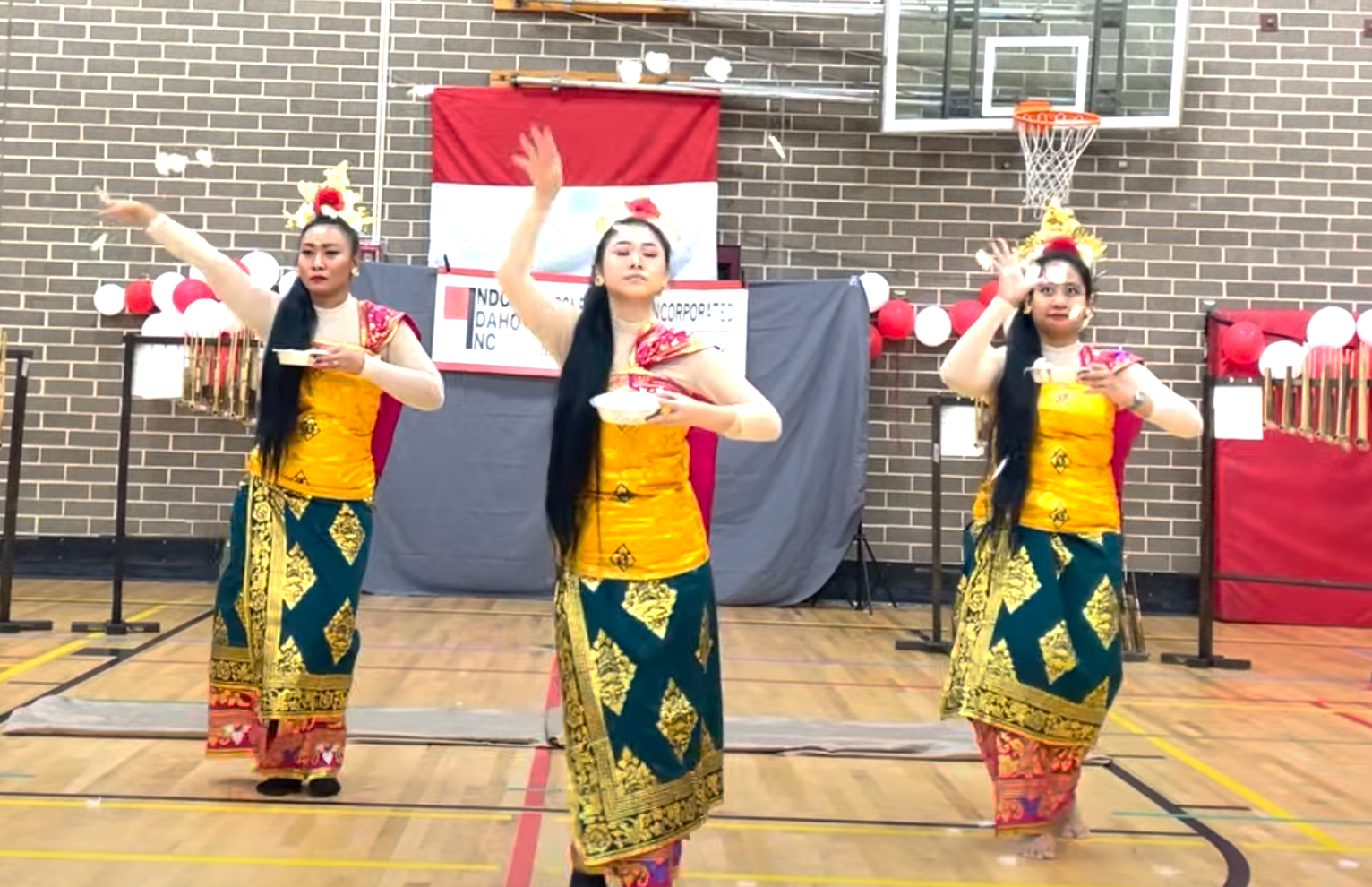
Indonesia Raya With Opening Speech
From The Consulate General San Francisco's Representative
To kick off the event, all of our guests were invited to stand and join in singing the Indonesian National Anthem, "Indonesia Raya." Mrs. Nova Maulani, Consul of Protocol and Consular Affairs from the Consulate General of Indonesia in San Francisco, then delivered a brief speech about Indonesia and its rich cultural heritage—a perfect way to officially begin the event!
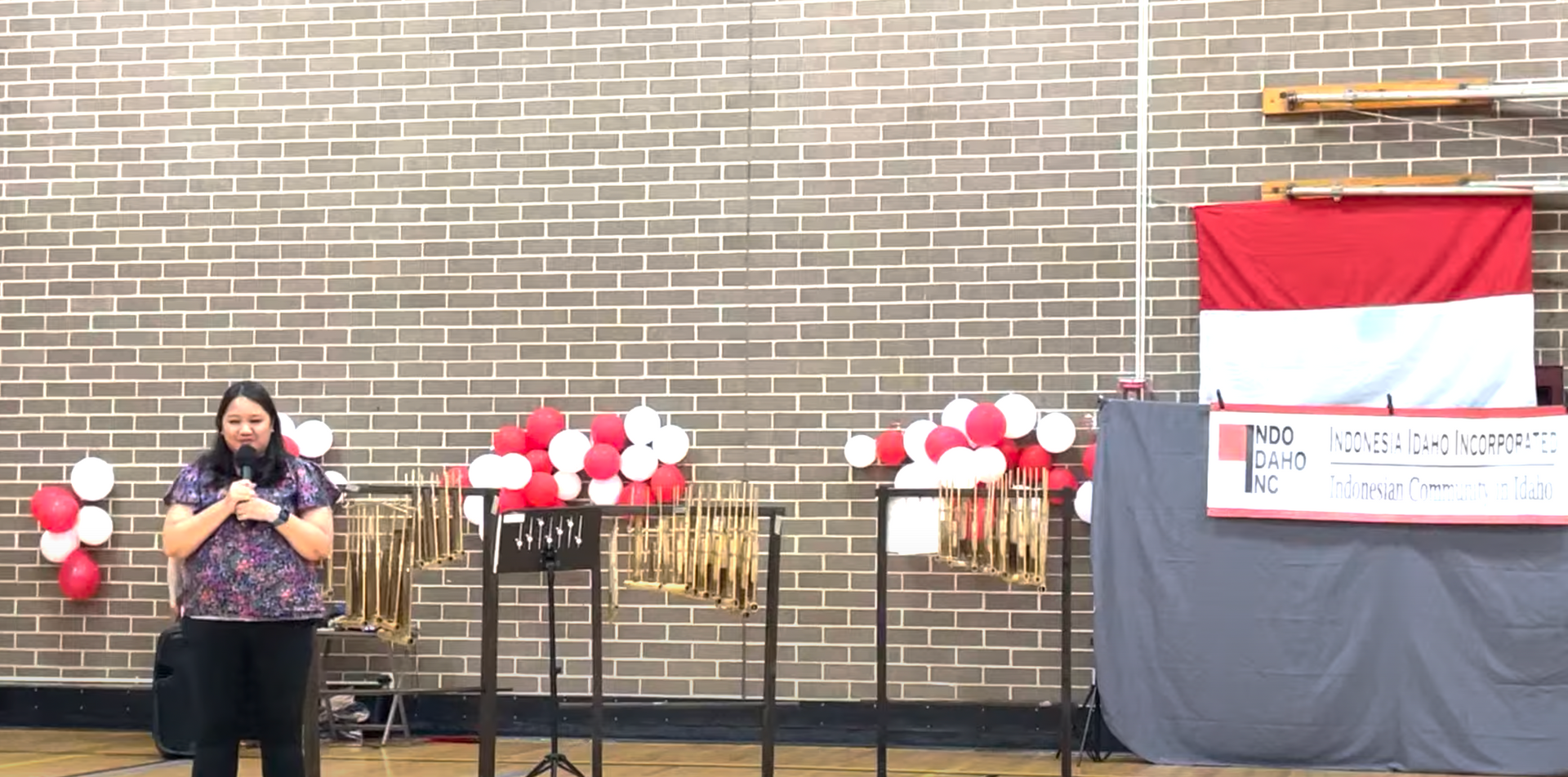
Angklung and Gambang Performence
So, what is Angklung?
Angklung is a traditional Sundanese instrument made of bamboo tubes attached to a bamboo frame. On Sunday, Angklung was played in harmony with a saxophone and a Gambang, a xylophone-like instrument made from straight-grained hardwood that is widely used in Indonesia. The combination of Angklung, Gambang, and saxophone created a unique and harmonious sound.
The ensemble performed two songs. The first was "Tanah Air Ku" ("My Homeland"), written by Saridjah Niung, also known as Ibu Sud. This song is popular in Indonesia, often performed during independence celebrations and ceremonies.
The second song, "Manuk Dadali," is a Sundanese song that uses the metaphor of a strong and graceful bird to represent Indonesia. Written in the Sundanese language, it is one of the most beloved traditional songs in the country.
Our performers were dressed in Saman dance costumes, and after this musical performance, they will keep the energy going by dancing the day away!
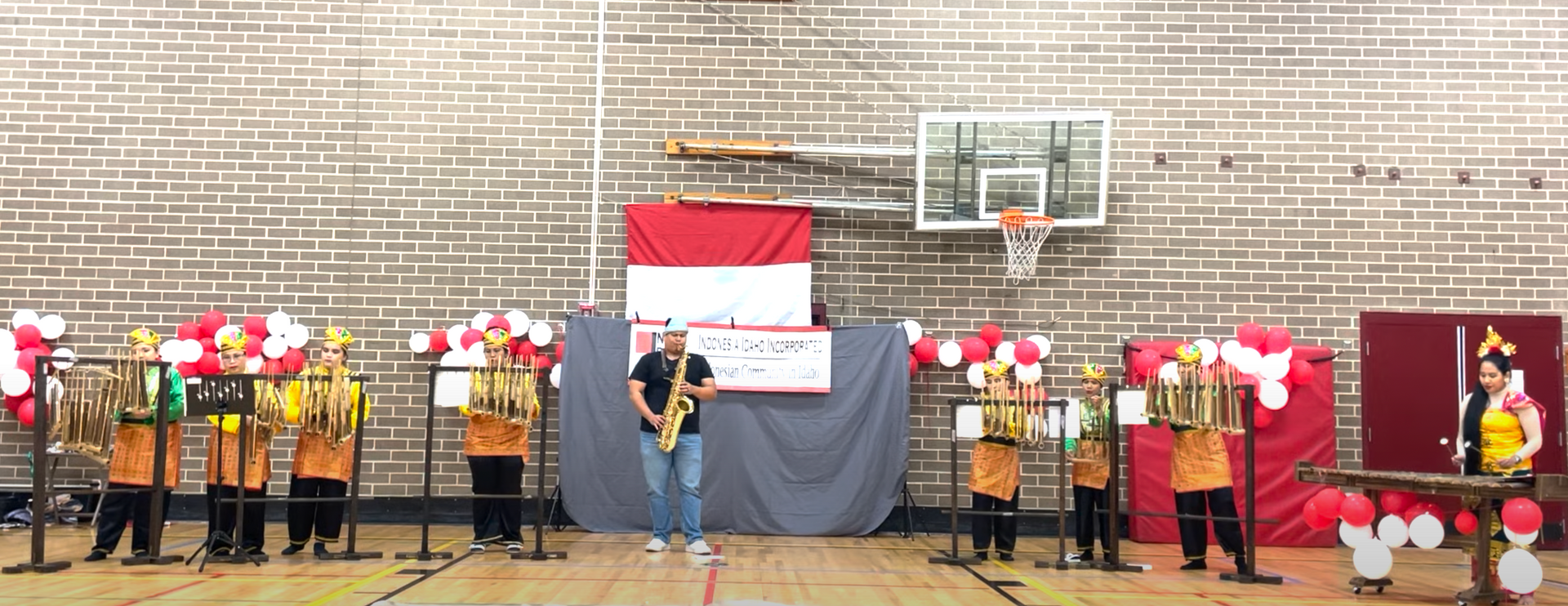
Saman Dance,
The Dance of a Thousand Hands
After the opening remark, we continued to celebrate our traditional cultures through dancing! Starting from the Aceh Province; the province located in northern part of Sumatra Island.
Saman Dance or also known as "The Dance of a Thousand Hands" is one of the most popular traditional dances in Indonesia. Saman is officially recognized by UNESCO in 2011 as an Intangible Cultural Heritage in Need of Urgent Safeguarding . It is also named as the best ASEAN (The Association of Southeast Asian Nations) cultural preservation at the 25th ASEANTA (The ASEAN Tourism Association) Awards for Excellence in 2012.
Fun fact, this dance was also performed at the ASEAN Games opening ceremony in 2018.
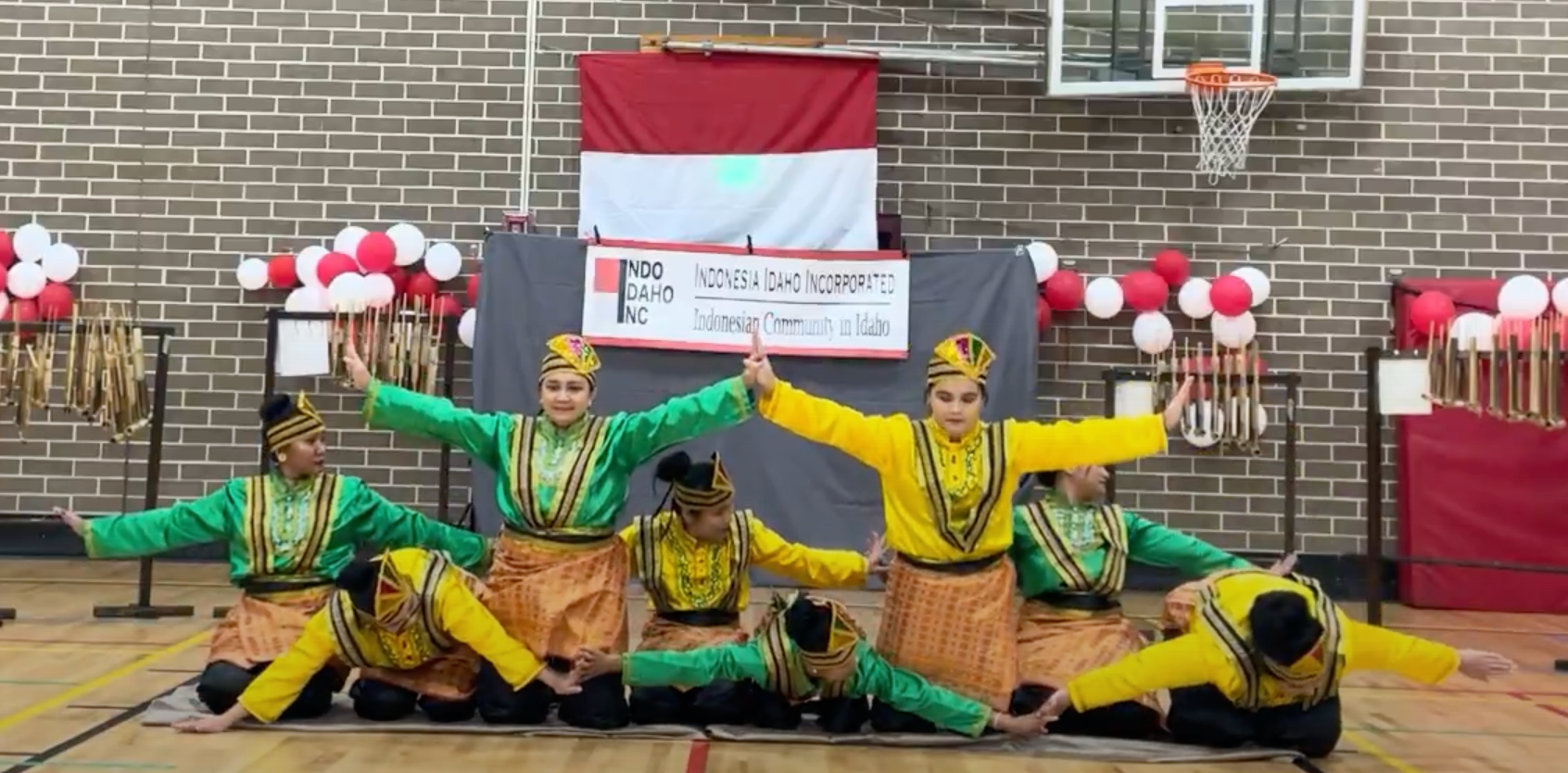
Our dancers from the left: Niken Strawn, Mia Britton, Maya Hill, Cecillia Mathes, Riski Chenowith, Norissa Pifher, Septa Shanaberger, Anisa Monetti.
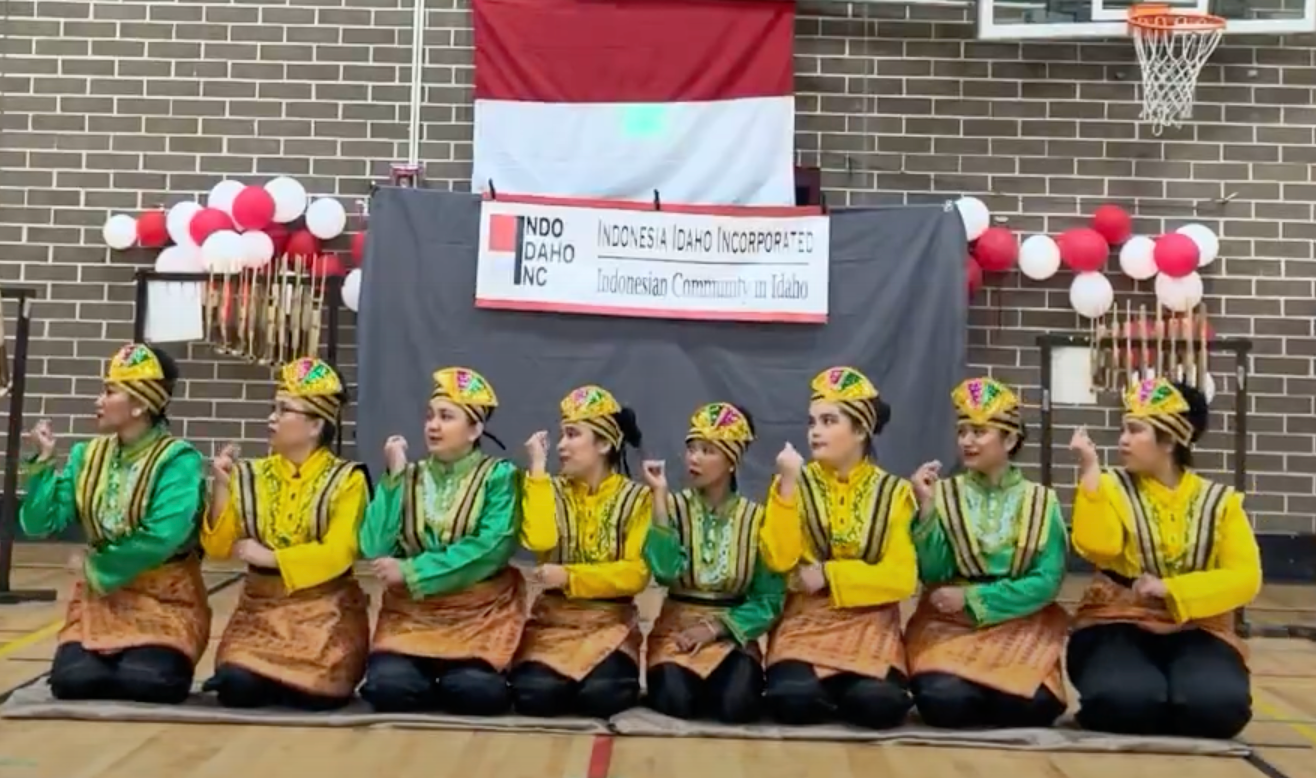
Jaranan Kepang Dance,
The Flat Horses
The Jaranan Kepang dance, also widely known as "Kuda Lumping," is a traditional performance from Ponorogo, East Java, Indonesia, portraying a group of horsemen. In English, "Jaranan Kepang" means "Flat horses." This dance is deeply rooted in Javanese culture.
The Jaranan Kepang made its debut performance on Sunday, and they did an amazing job. We’d love to see more of this performance, wouldn’t you agree?
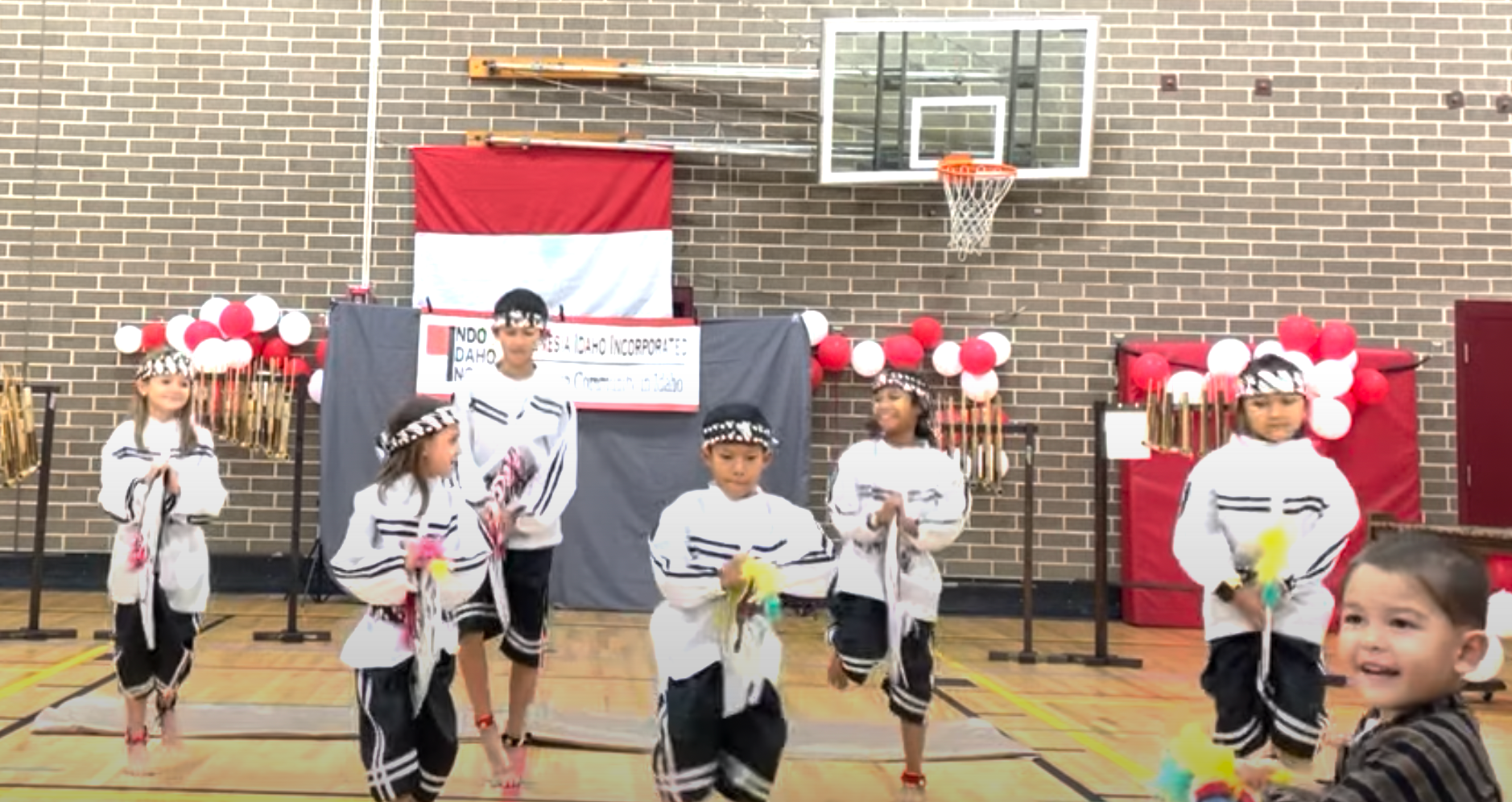
Our young dancers: Eva DeMaine, Daisy Hook, Destan Hook, Adam Wiranata, Alena Wiranata, Alisha Pratyangga, Daniel Hook
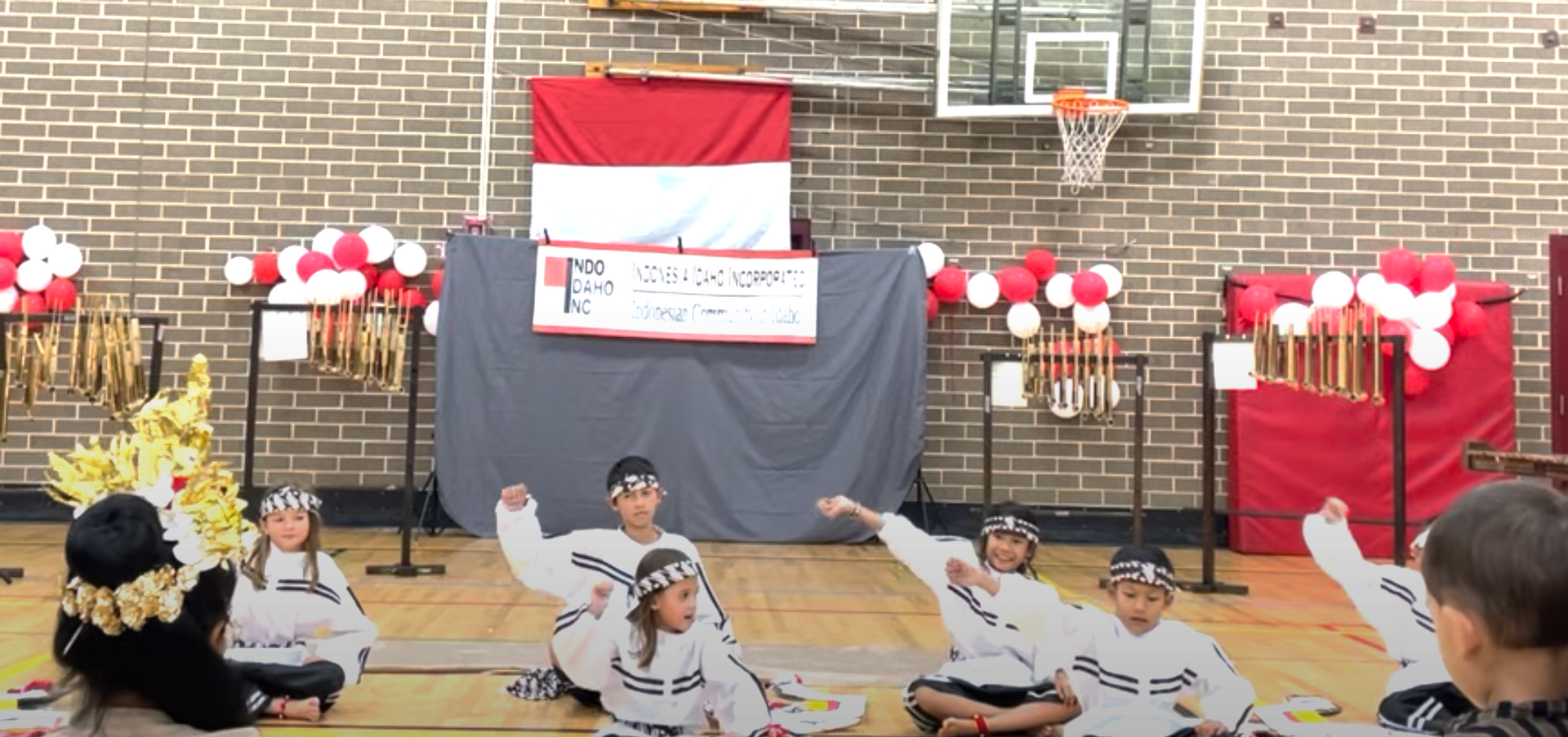
Yapong Dance
Yapong dance is a dance originated from the Betawi people. Betawi are a group of people that originate in Jakarta, Indonesia. This dance depicts the association of young people created by the artist Bagong Kussudiardja. The Yapong dance was performed for the first time to celebrate Jakarta's 450th anniversary event in 1977.
With the bright colorful costumes, energetic moves and song, this dance truly lightens the mood!
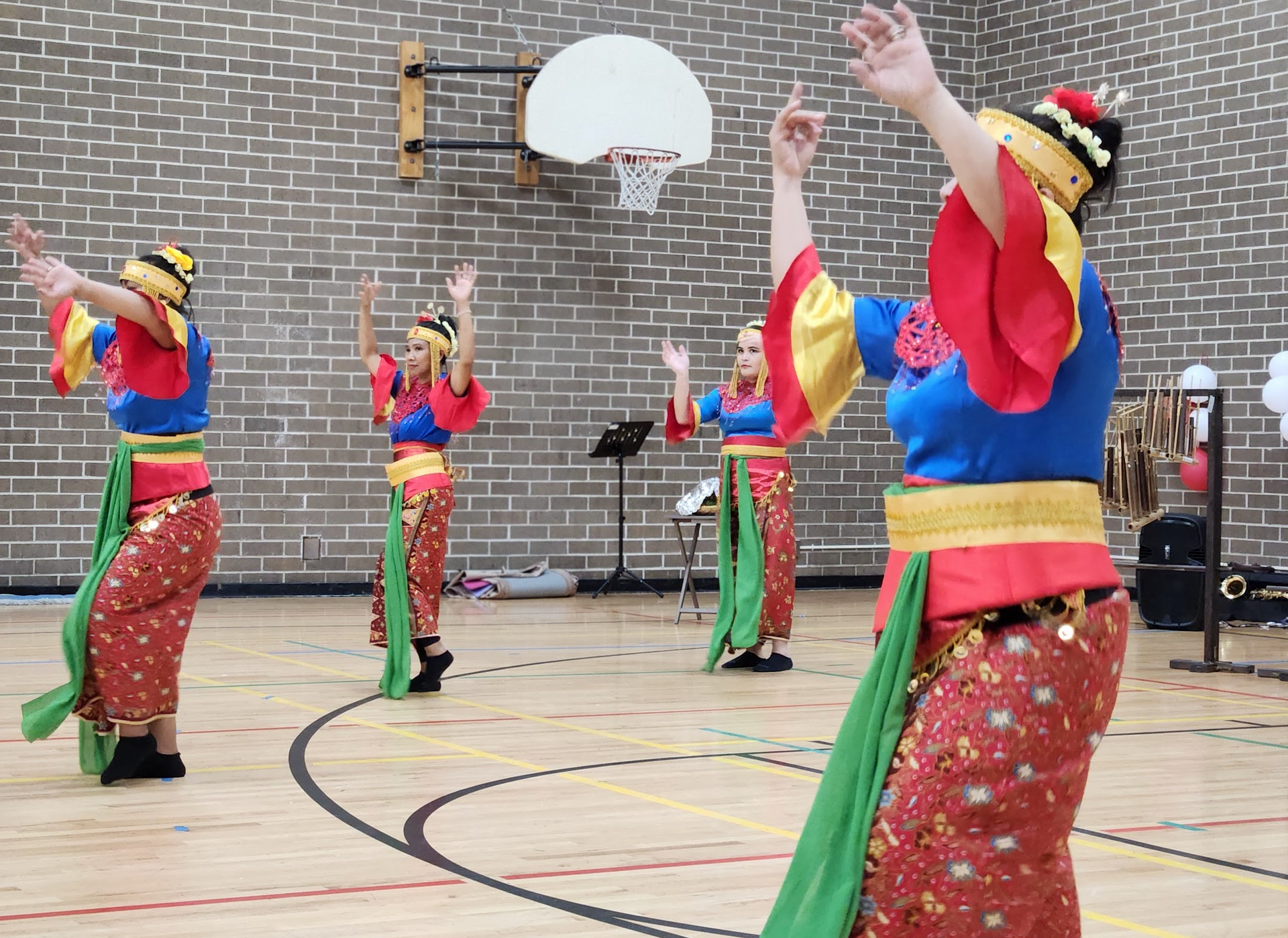
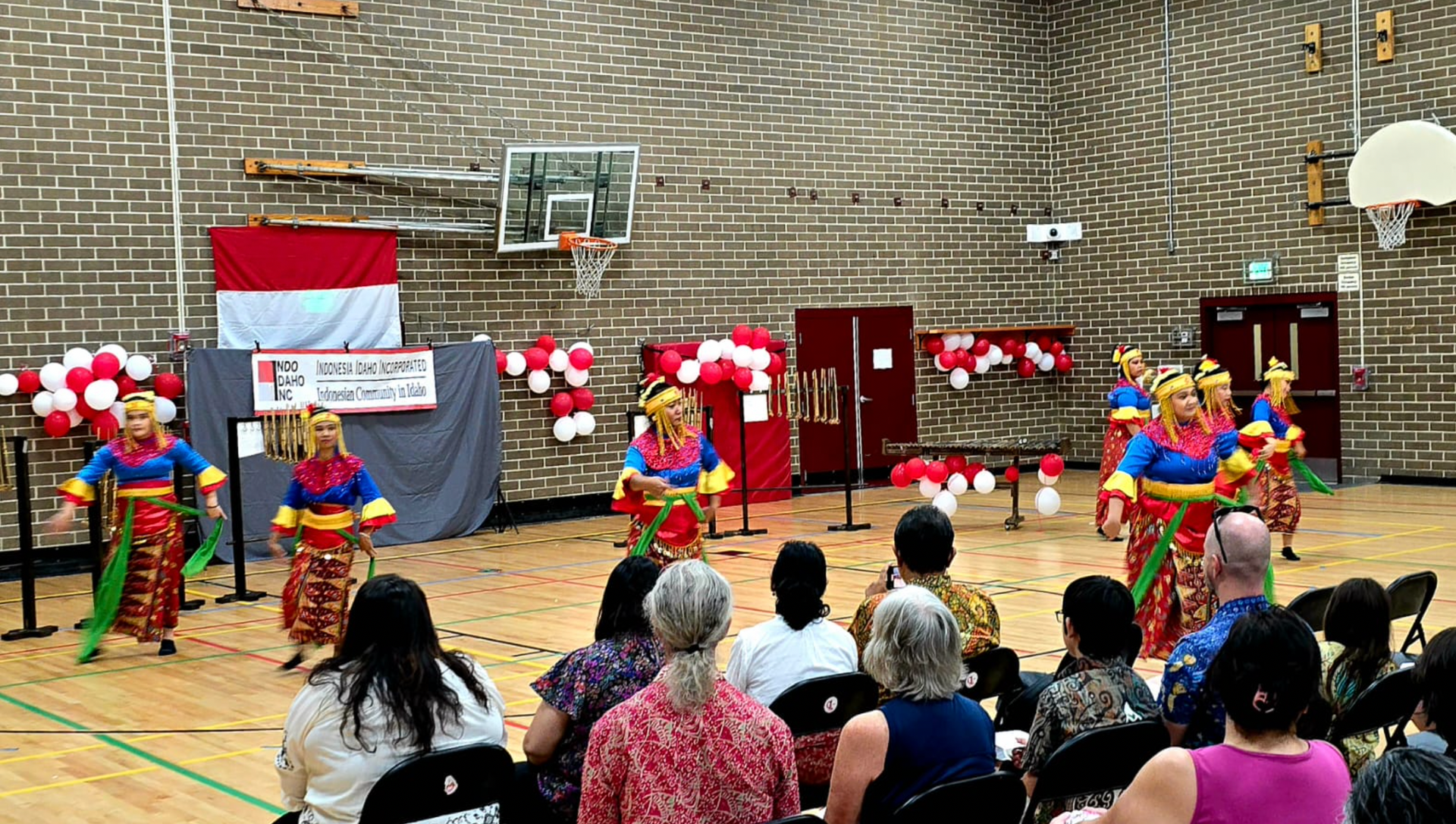
Our dancers from the left: Norissa Pifher, Riski Chenowith, Niken Strawn, Maya Hill, Mia Britton, Cecillia Mathes, Anisa Monetti.
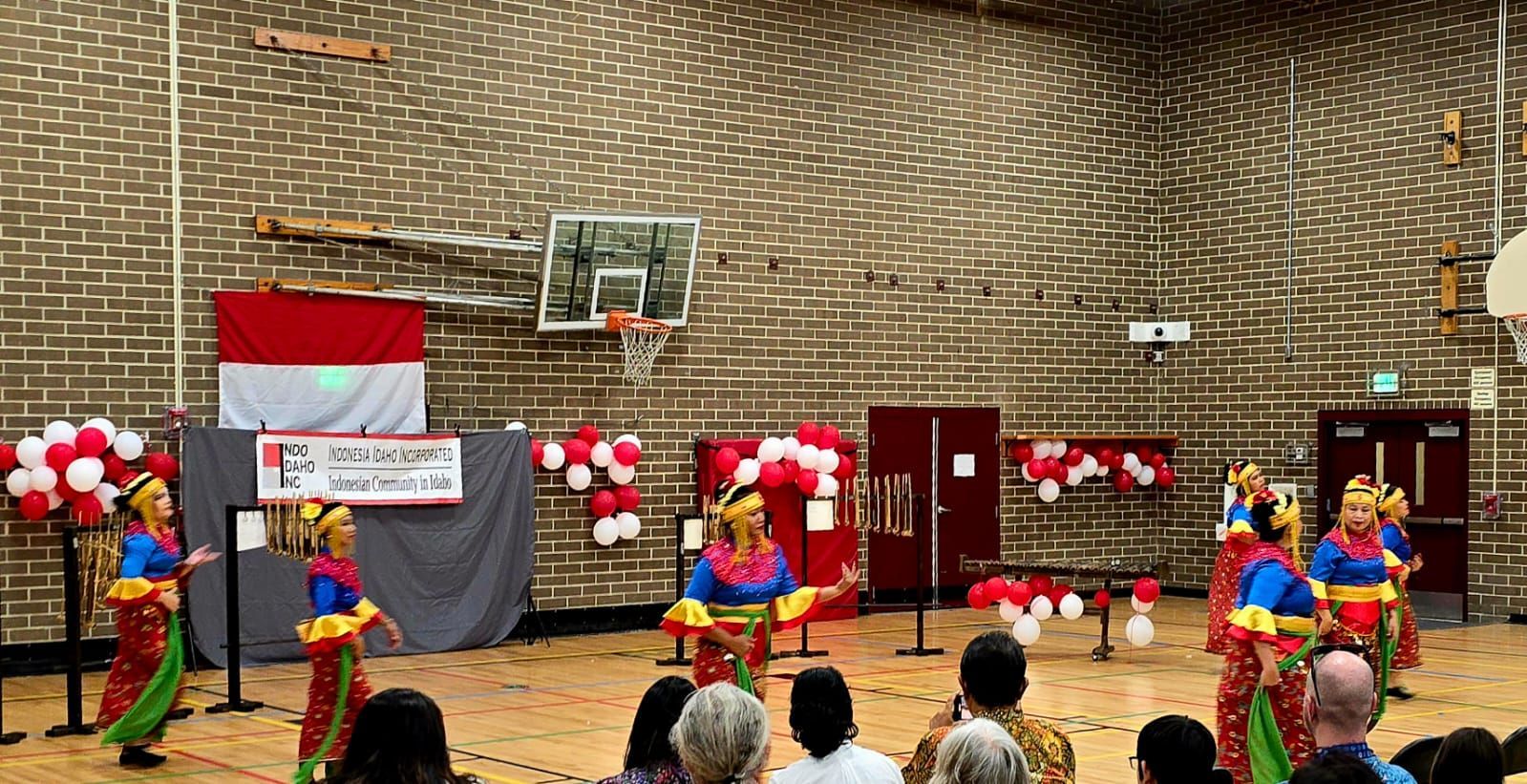
Badminton Tournament Winner Announcement
On Saturday, September 7th, 2024, Indo Idaho hosted its third annual badminton tournament.
The tournament featured participants from the Treasure Valley community, all united by their shared love for badminton, one of the most popular sports in Indonesia and many other Asian and European countries.
A big thank you to everyone who participated, and congratulations to our winners:
First place: Anton Wiranata and YH
Second place: Matt Lee and Sandeep Kukunuri
Third place: Don Loh and Bharath Sepuri
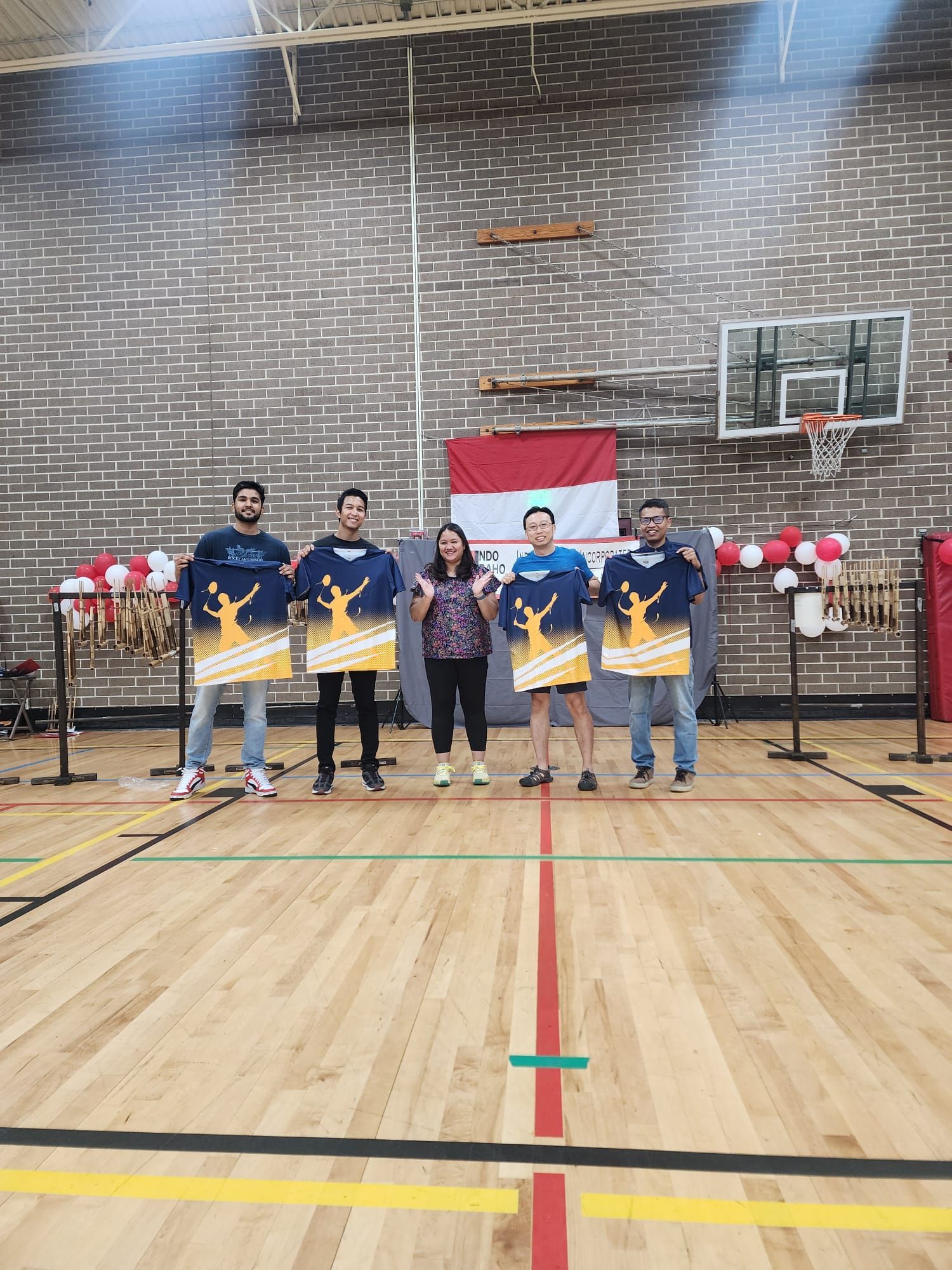
Caleb Theng & Joshua Theng Performence
Great performance from the Theng brothers! Joshua Theng performed a cover of Despacito song with violin, and Caleb Theng performed .
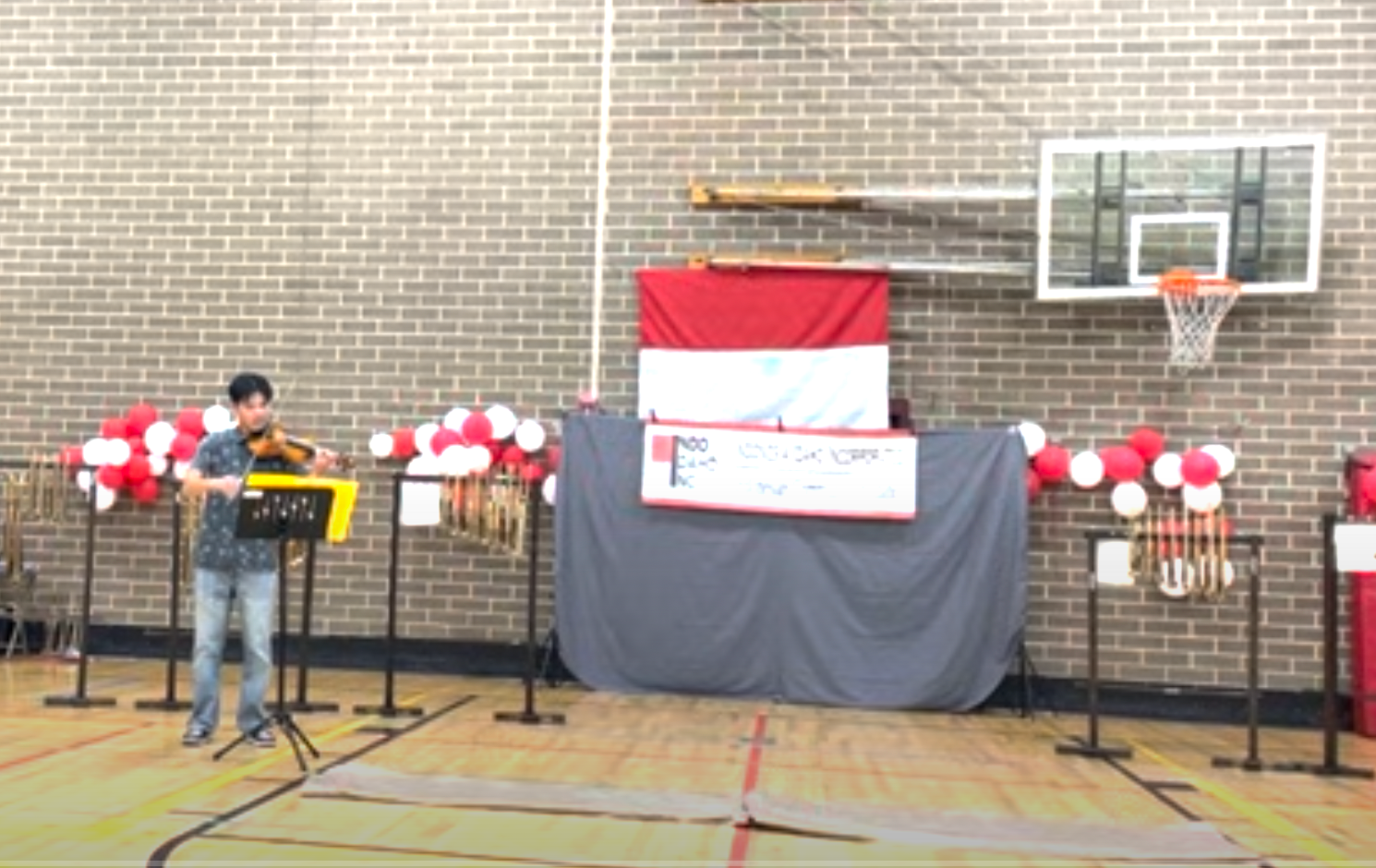
With their excellent skill, the entire crowd was singing and clapping together!
Dandi's Solo Music Performance
Dandi played two of Indonesia's hit pop songs by the legendary musician Chrisye on the saxophone.
Chrisye was an iconic Indonesian progressive pop singer and songwriter.
In 2011, Rolling Stone Indonesia ranked him as the third-greatest Indonesian musician of all time.
It was an amazing time, with everyone singing along together!

Indonesian Traditional Outfit Showcase/Fashion Show
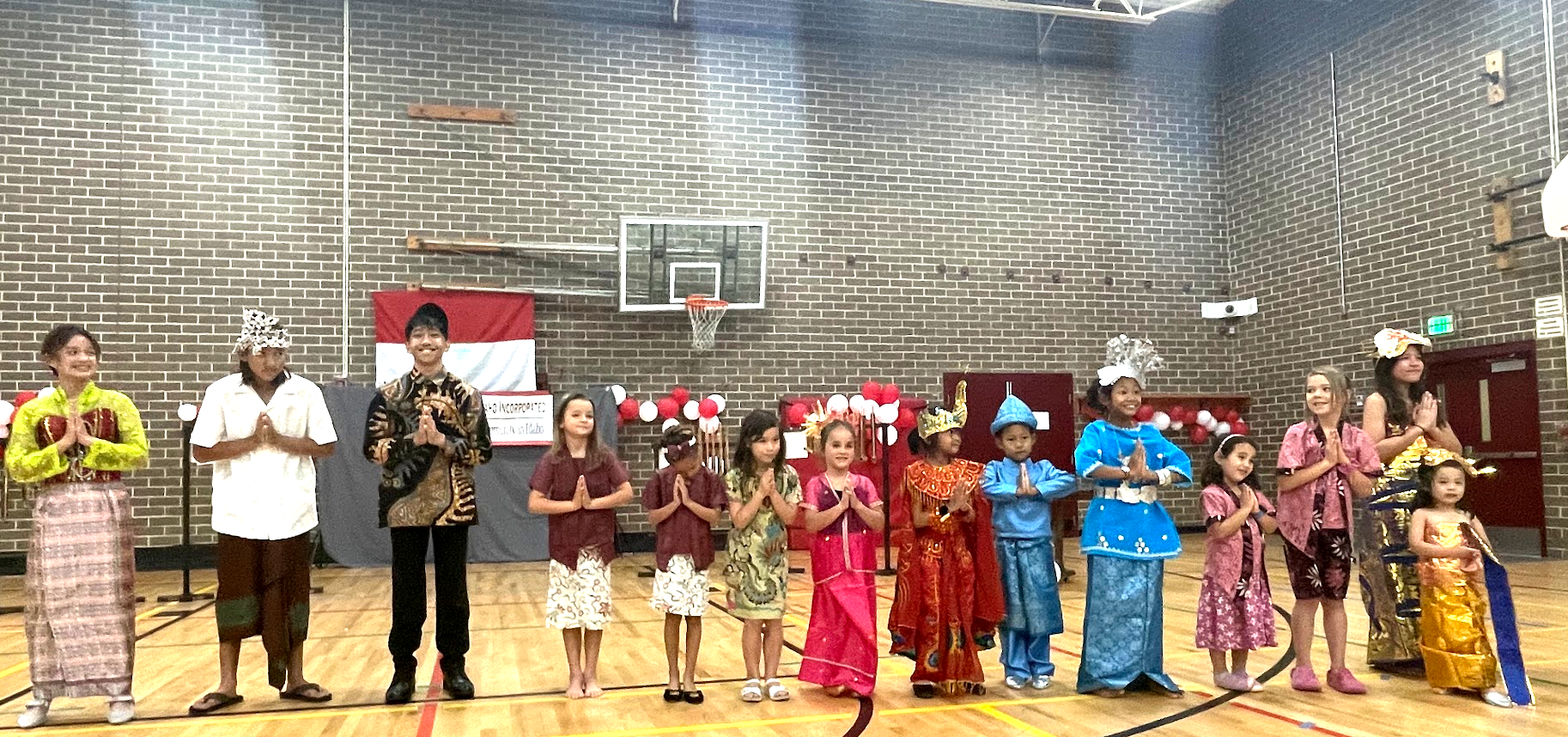
We had many adorable models! From Sabang to Merauke, we had young kids wear and presenting their traditional attire.
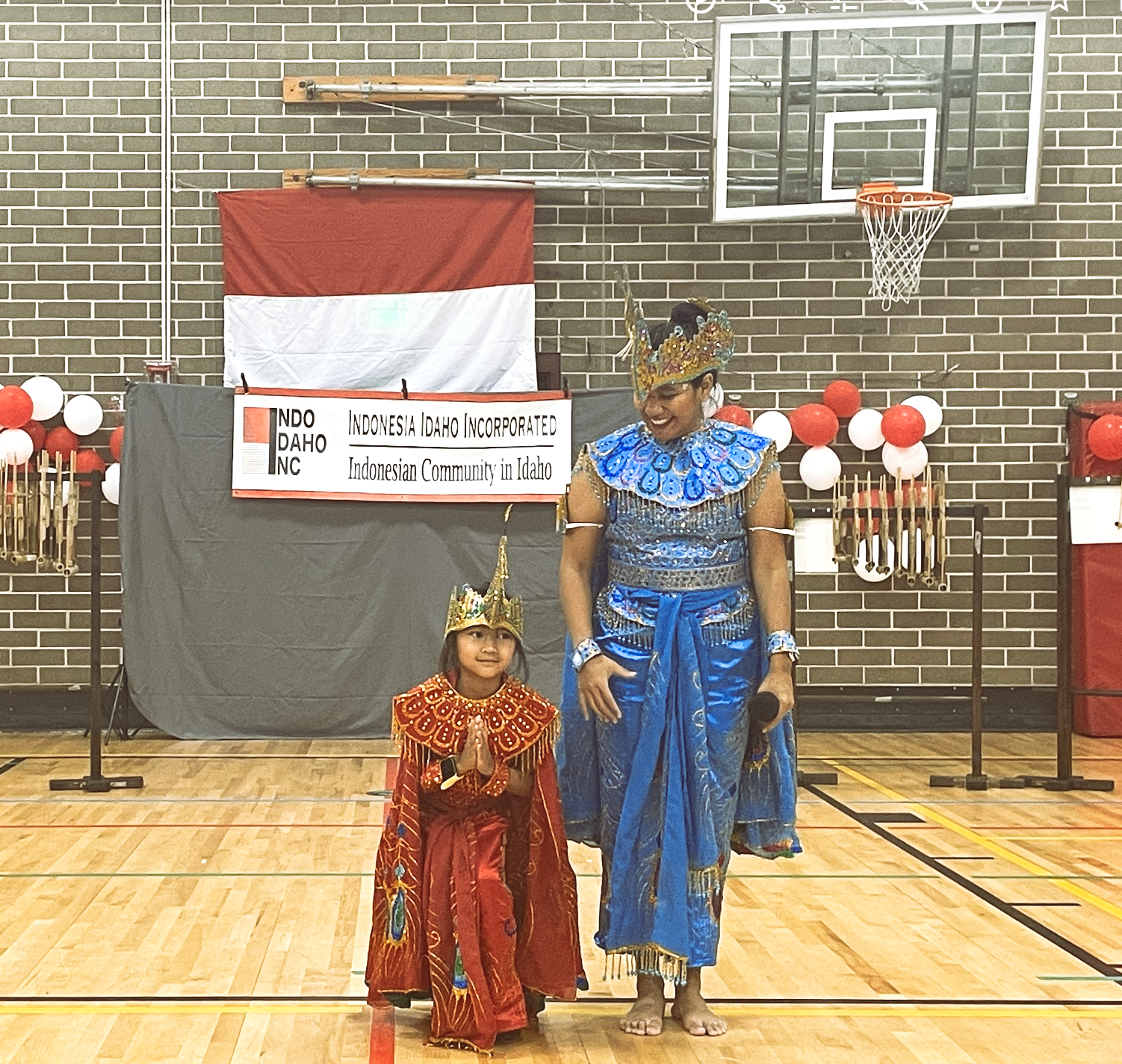
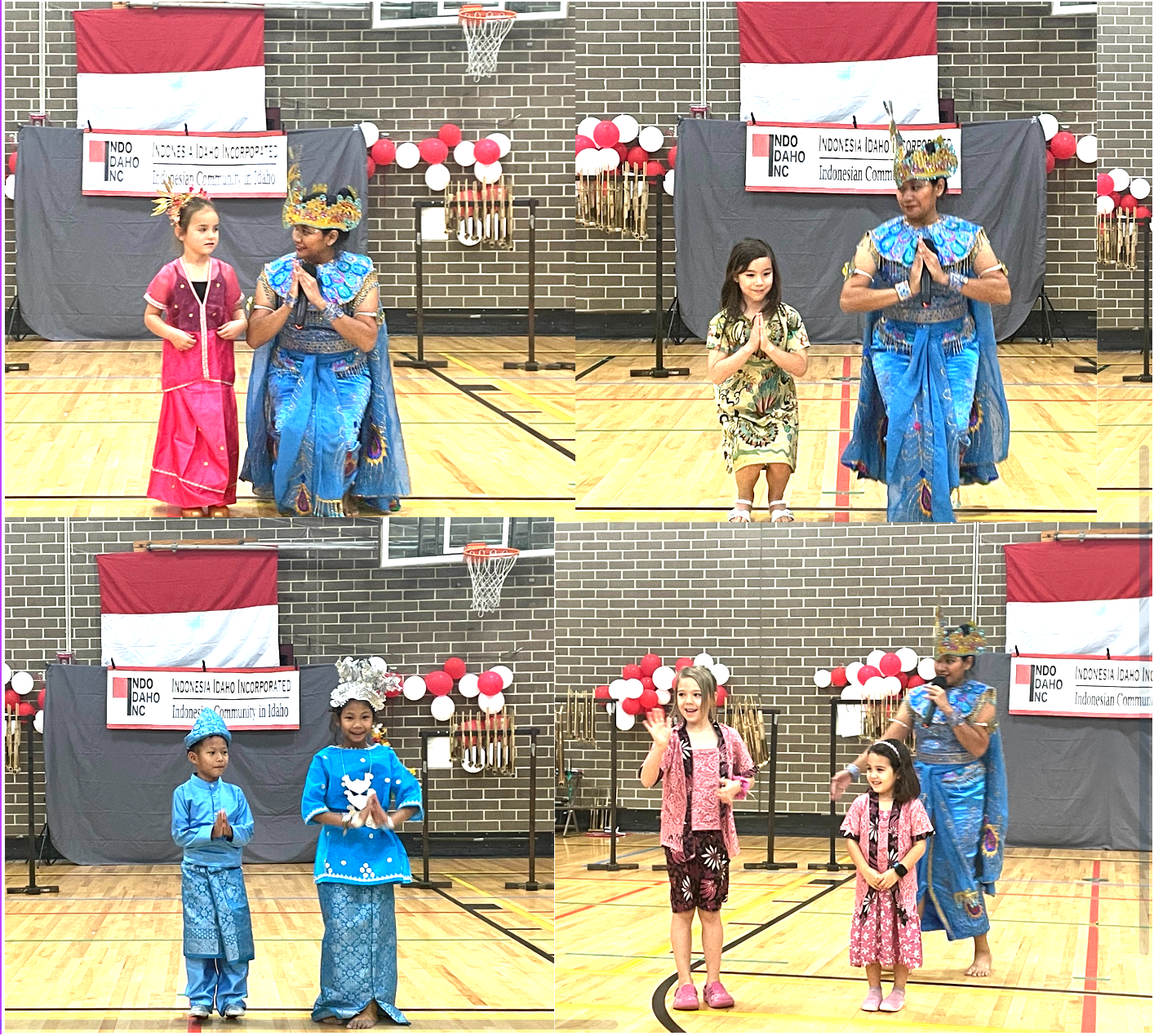
Everyone looks so pretty and confident! Thank you so much for participating!
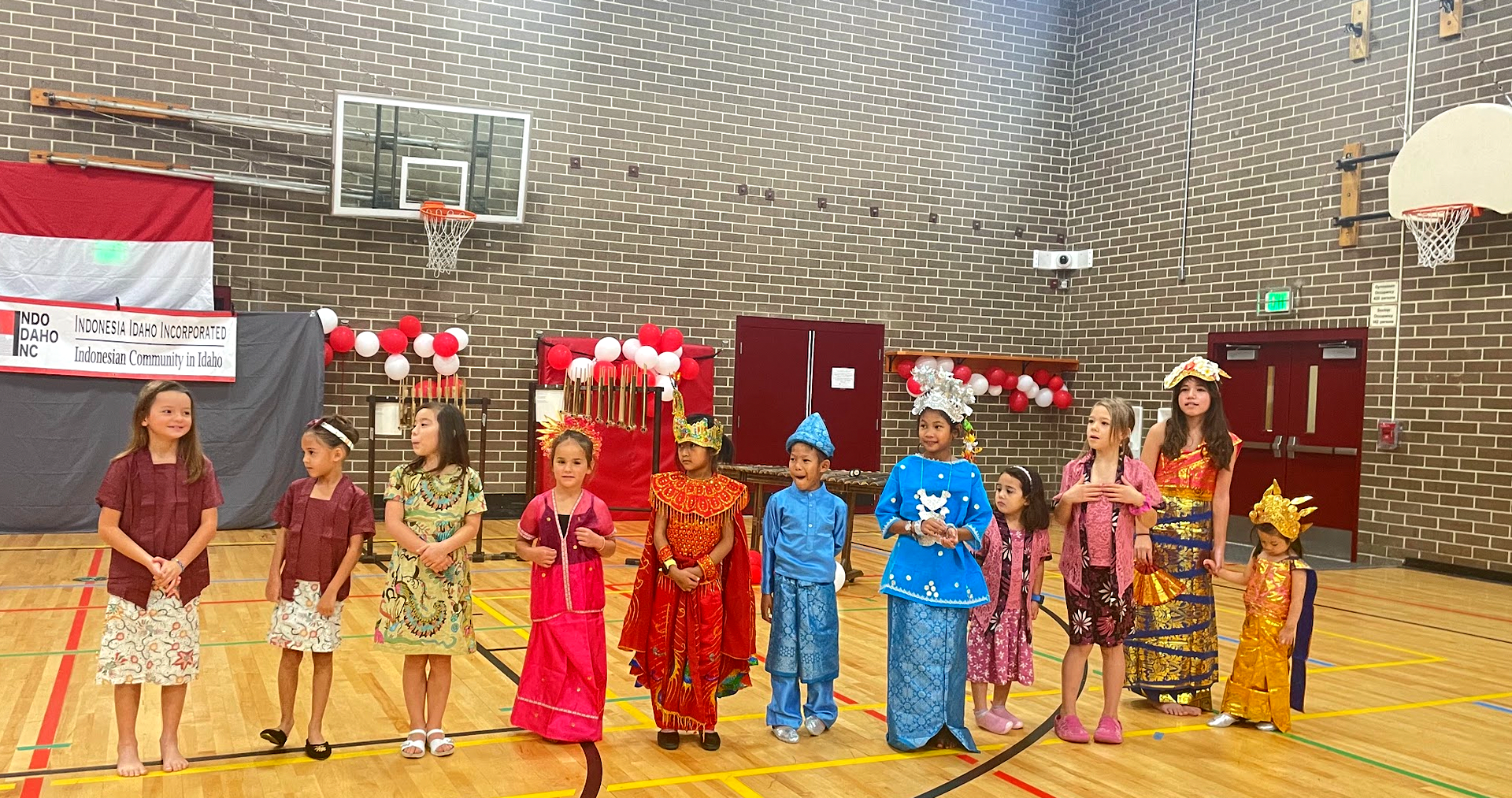
Merak Dance,
The Sundanese Peacock Dance
The Merak Dance, or Tari Merak, also known as the Peacock Dance, originates from West Java. Performed by female dancers, it draws inspiration from the graceful movements of a peacock, with its feathers and wings seamlessly blending with the classical elements of Sundanese dance. This modern creation was choreographed by Sundanese artist Raden Tjeje Soemantri in the 1950s.
The dance is typically performed to welcome distinguished guests at major events and is also popular at Sundanese wedding ceremonies. Interestingly, it is one of the most frequently performed Indonesian dances outside of Indonesia—and we’re thrilled to be part of that tradition!
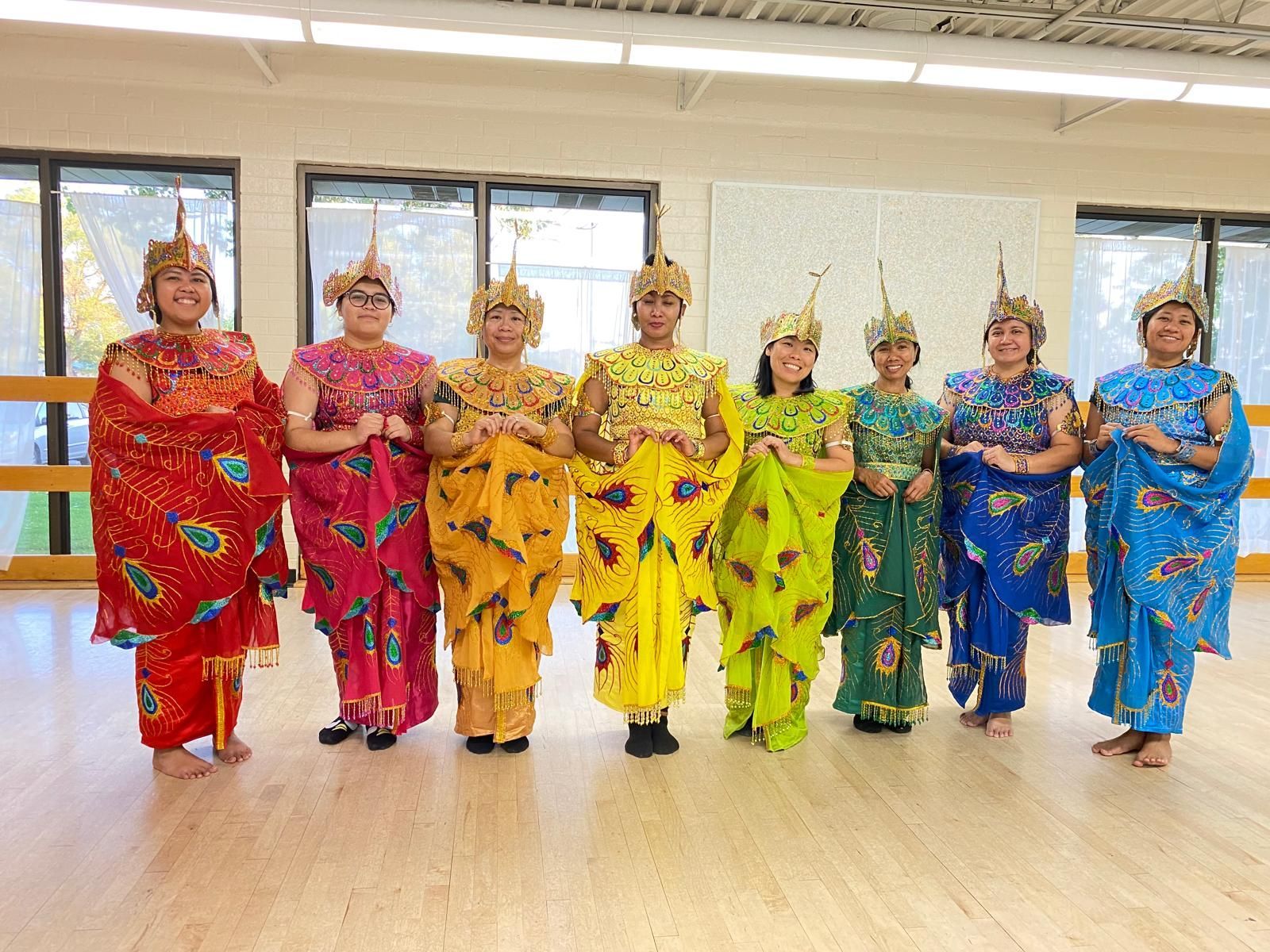
Our dancers from the left: Anisa Monetti, Norissa Pifher Mia Britton, Niken Strawn, Cecilia Mathes, Riski Chenowith, Maya Hill, and Arin Hening.
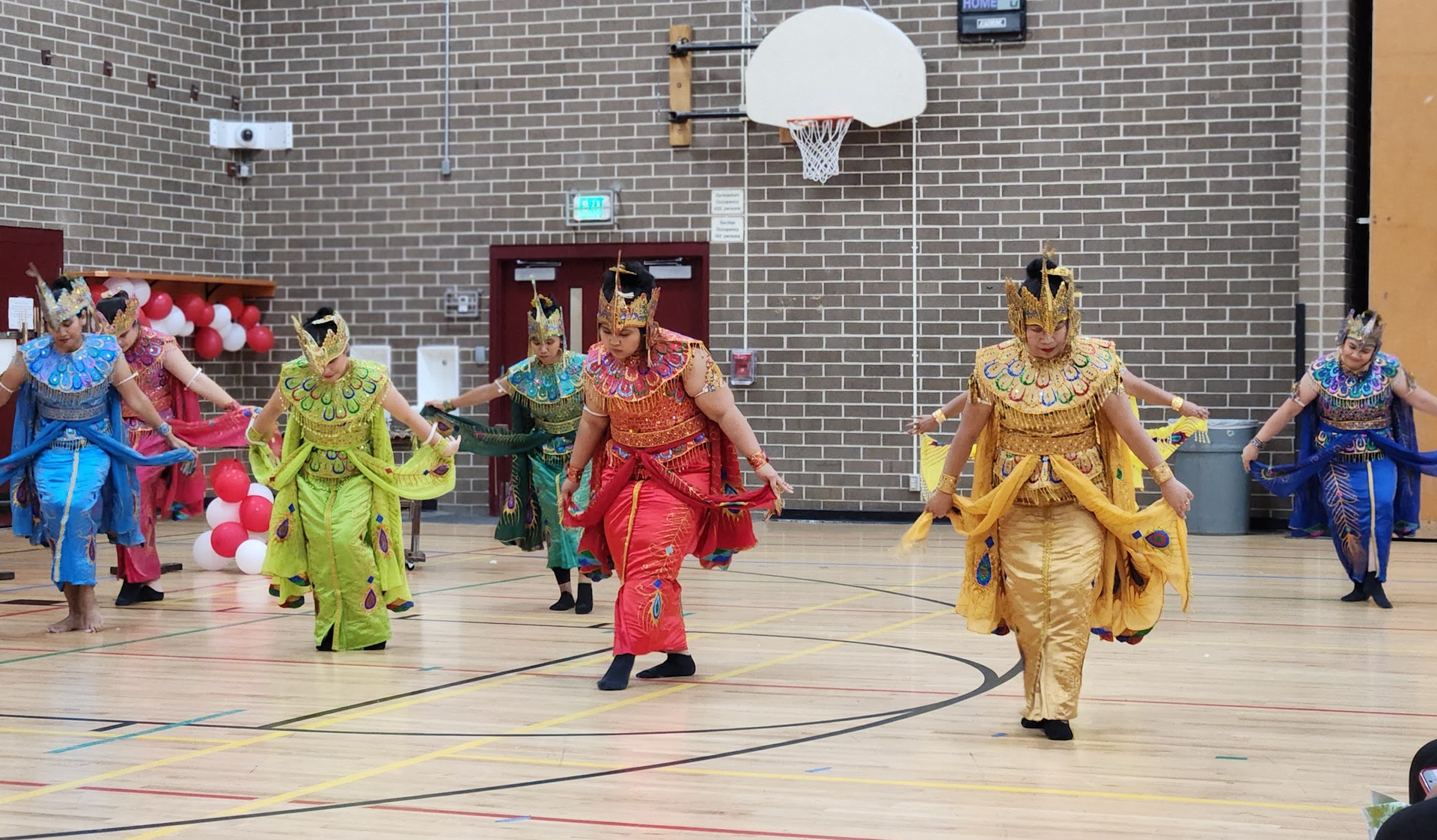
Tumpeng Cutting Ceremony
Tumpeng is a traditional Indonesian dish originating from Javanese cuisine, featuring cone-shaped rice accompanied by side dishes of vegetables and meat. Traditionally served during the slametan (gratitude) ceremony, the rice is shaped using a cone-shaped woven bamboo mold. It can be plain steamed rice, uduk rice (cooked with coconut milk), or yellow rice colored with turmeric.
Tumpeng symbolizes gratitude and is typically served during significant celebrations. According to Javanese and Balinese folklore, the cone-shaped rice represents life and the glory of God as the creator of nature, while the side dishes and vegetables symbolize the balance and harmony of life. Spinach, often included, represents prosperity in traditional Javanese agricultural society.
In the gratitude ceremony, after the people pray, the top of tumpeng is cut and delivered to the most important person first.
We are thrilled to share this meaningful tradition with many of our guests!
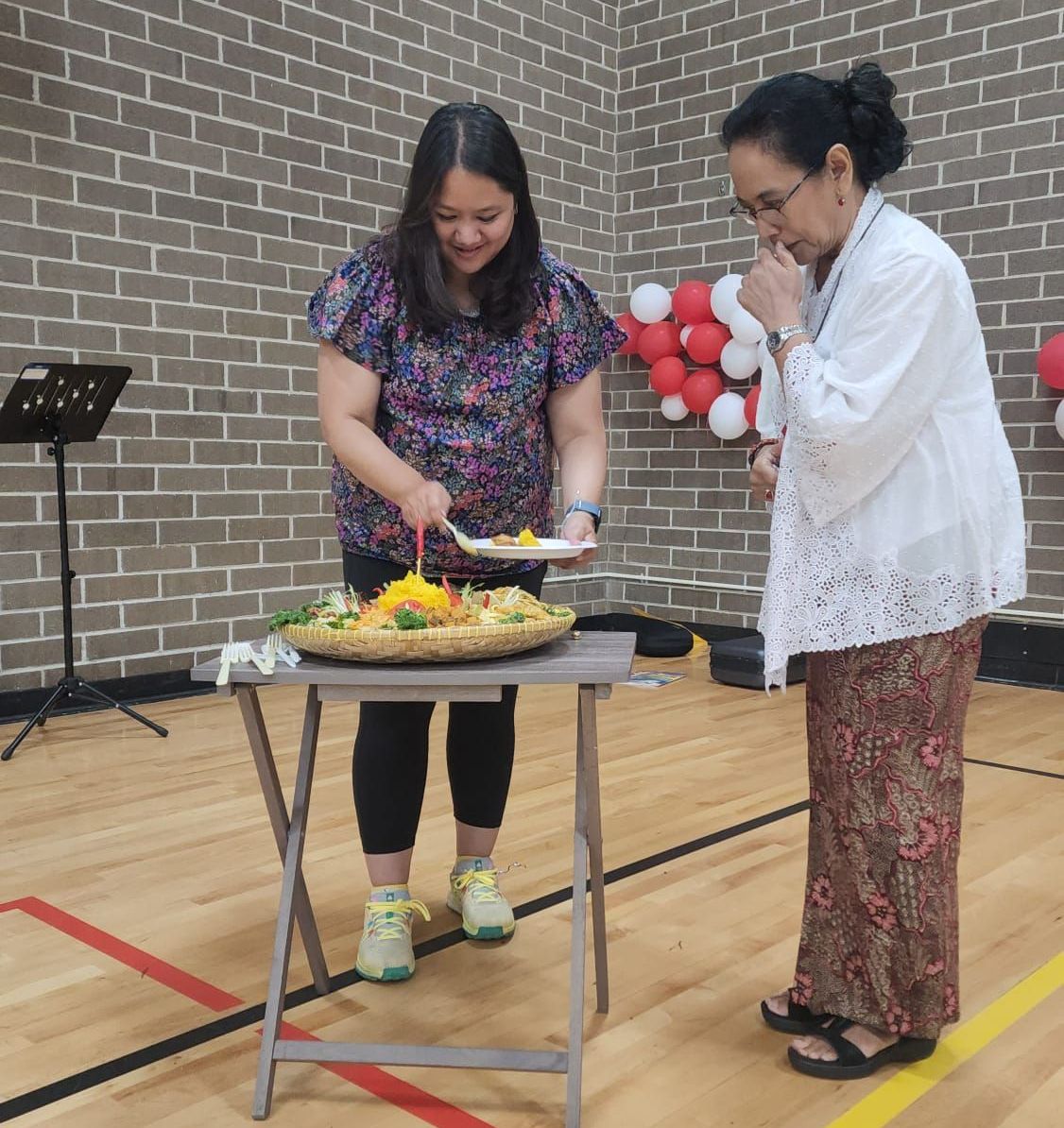
Mrs. Nova Maulani is cutting the tumpeng and share it with Mrs. Enni Soerjati.
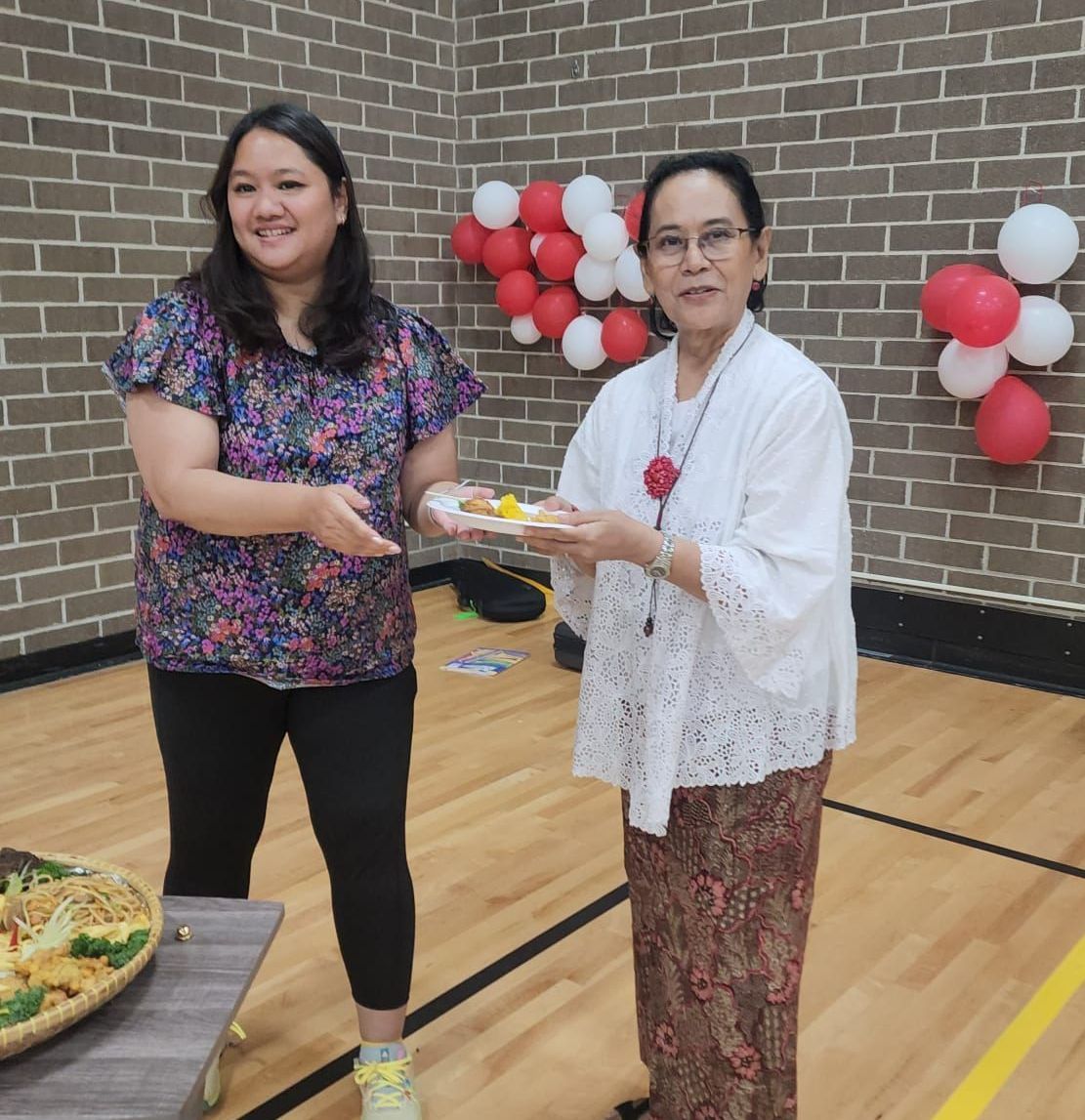
Lunch & Games
We had an incredible array of mouth-watering Indonesian dishes on Sunday! A big thank you to all the guests who prepared and shared their best recipes!
From Pentol (meatball soup), Nasi Kuning (yellow rice cooked with coconut and turmeric), Nasi Goreng (fried rice), Mie Goreng (fried noodles), Sambal (chili paste with a blend of exotic herbs and spices), and Makaroni Schotel (a Dutch-influenced pasta casserole with vegetables and meat), to delicious traditional sweets like Kue Pandan (steamed cake made with pandan paste)—there was something for everyone to enjoy.
After lunch, we played some traditional games, including one where participants transferred the Indonesian flag from one cup to another!
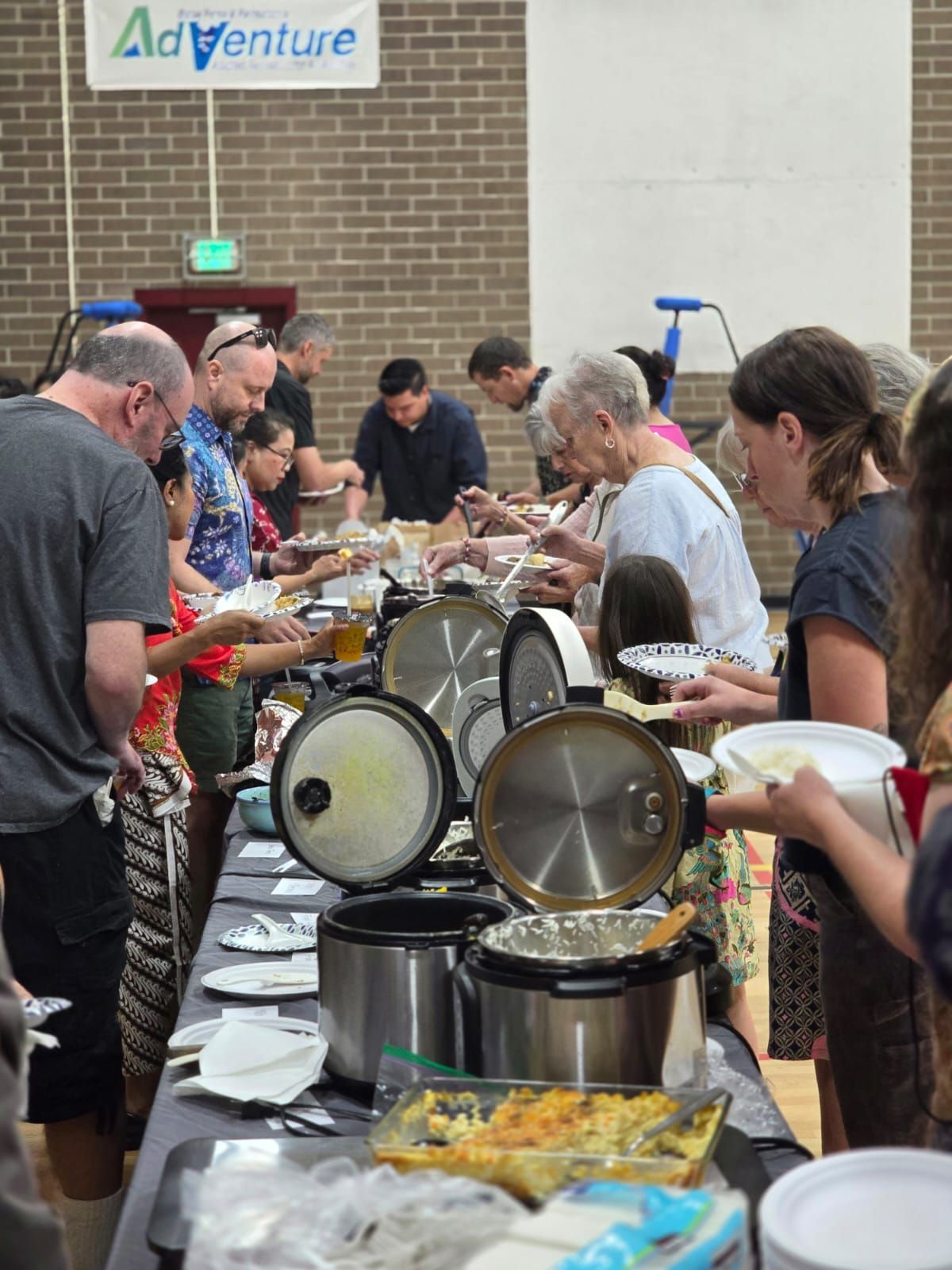
Lunch (above) and Games (below)
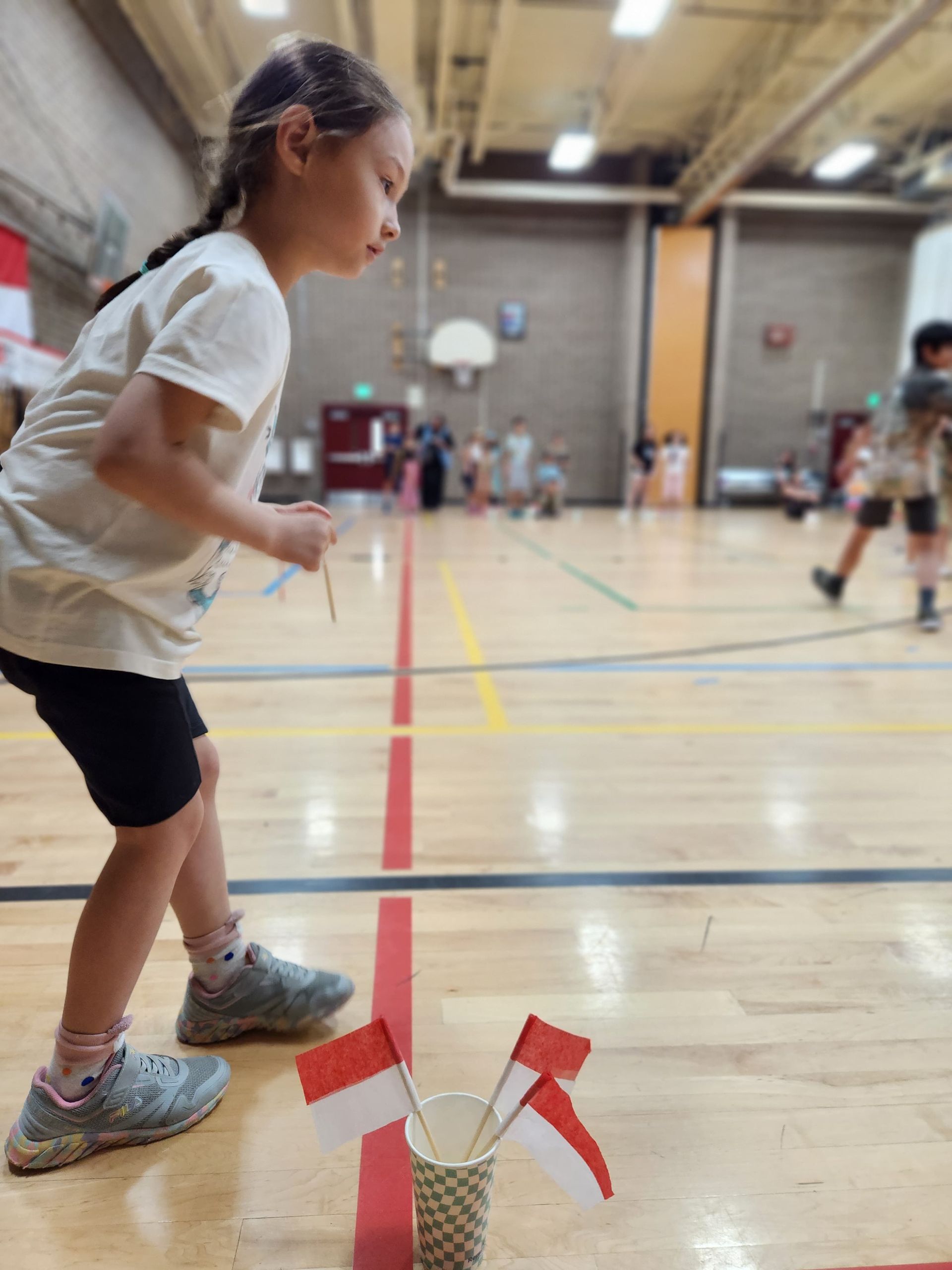
Lastly, we took tons of memorable photos! To all of our performers, and all people who helped prepare this event, thank you so much!!!
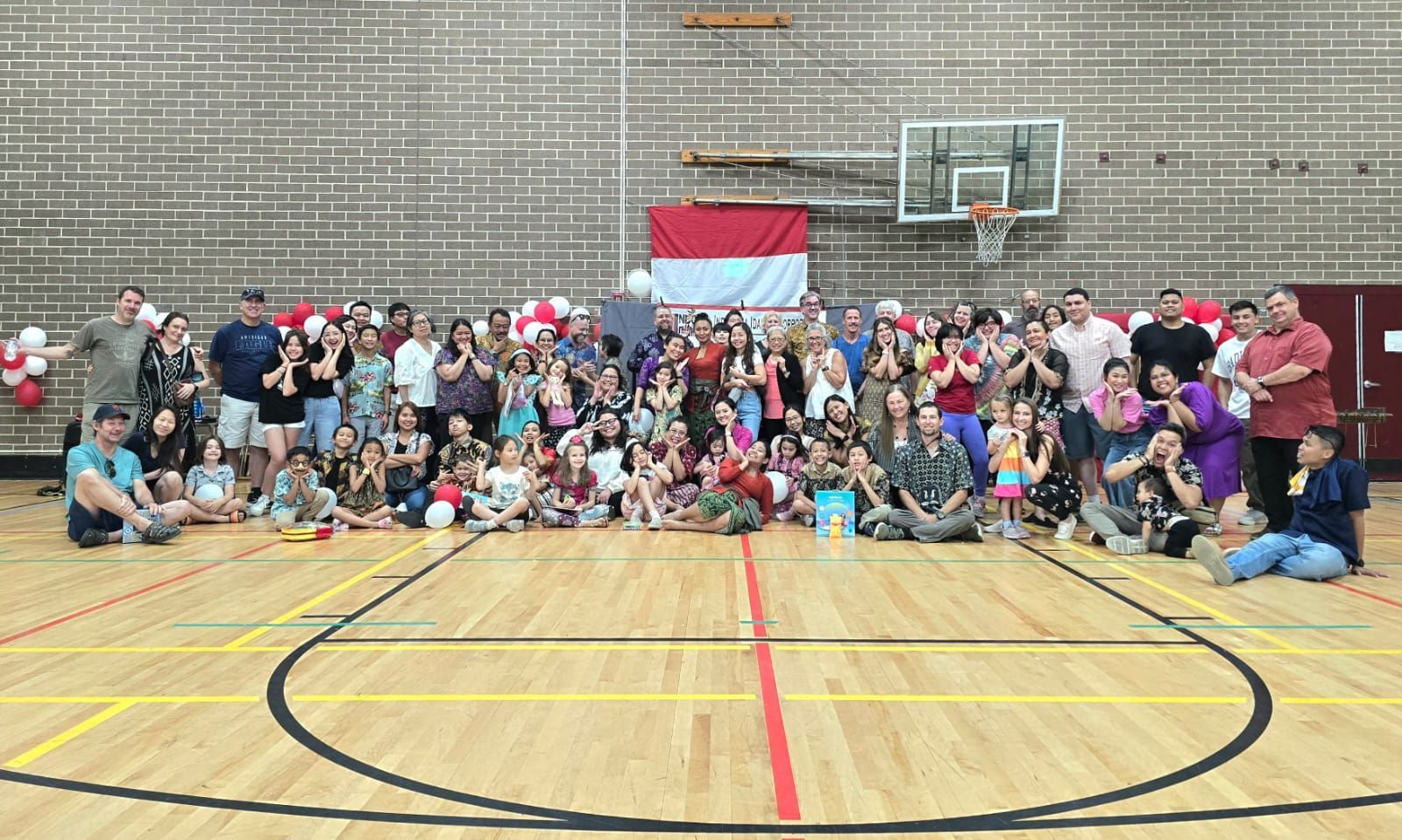
See you at our next event!
Sampai jumpa di acara kami selanjutnya!
Indo Idaho Inc is a Boise-based non-profit organization that is run by Indonesian Diaspora residing in Idaho. Indo Idaho Inc main purpose is to educate, share and preserve Indonesian culture within the State of Idaho.
About
Meet the team
Resources
Indo Idaho, Inc.
